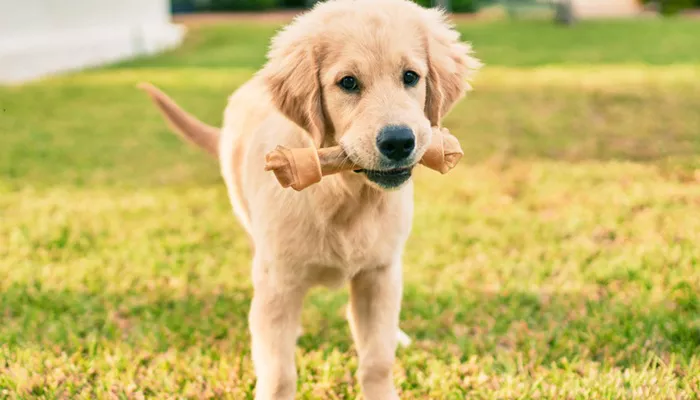Keeping a dog’s teeth clean and healthy is crucial for their overall well-being. Poor dental care can lead to gum disease, tooth loss, and infections. Chewing on dog bones is a natural way to reduce plaque and tartar buildup, stimulate gums, and satisfy your dog’s instinct to chew. This article will explore the 12 best dog bones that promote healthy teeth, backed by scientific facts and expert opinions.
How Dog Bones Help Maintain Dental Health
Dog bones act as natural toothbrushes. When dogs chew, the friction scrapes off plaque and tartar on their teeth. Chewing also massages gums, increasing blood flow and improving gum health. Additionally, chewing reduces boredom and anxiety, which can prevent destructive behaviors.
The Role of Chewing in Plaque and Tartar Control
Plaque is a sticky film of bacteria that forms on teeth. If left untreated, it hardens into tartar, which is difficult to remove. Regular chewing on appropriate dog bones helps mechanically remove plaque before it turns into tartar.
Gum Stimulation and Oral Hygiene
Chewing encourages saliva production. Saliva contains enzymes that naturally fight bacteria in the mouth. Stimulated gums also stay healthy and less prone to inflammation.
Criteria for Choosing Healthy Dog Bones
Choosing the right dog bone is important to ensure safety and dental benefits. Here are key factors to consider:
Material Safety
Opt for bones made of natural or vet-approved materials. Avoid cooked bones or hard synthetic materials that can break teeth or cause choking.
Size and Shape
Choose bones appropriate for your dog’s size and chewing strength. Bones too small may be swallowed whole, and bones too hard may damage teeth.
Digestibility
Some bones or chews can splinter or cause digestive issues. Always prefer those that either dissolve safely or can be digested without harm.
Top 12 Dog Bones for Healthy Teeth
1. Natural Rawhide Bones
Rawhide bones are made from the inner layer of cow or horse hides. They are soft enough to chew but firm enough to scrape plaque off teeth.
- Benefits: Good for moderate chewers; helps reduce tartar buildup.
- Precautions: Ensure high-quality rawhide to avoid choking hazards and gastrointestinal blockages.
2. Antlers
Antlers come from naturally shed deer or elk horns. They are dense and long-lasting.
- Benefits: Very durable; excellent for aggressive chewers; promotes healthy gums through tough chewing.
- Precautions: Can be too hard for some dogs, risking tooth fractures. Monitor use closely.
3. Nylon Chew Bones
Nylon bones are synthetic and designed specifically for chewing. They come in different hardness levels and flavors.
- Benefits: Long-lasting; safe when selected with the right hardness; helps scrape plaque.
- Precautions: Not edible; monitor for wear to prevent ingestion of plastic pieces.
4. Bully Sticks
Bully sticks are dried beef muscles that dogs enjoy chewing.
- Benefits: Fully digestible; promote chewing and saliva production; natural flavor dogs love.
- Precautions: Can be high in calories; ensure sourcing from reputable brands to avoid contaminants.
5. Himalayan Yak Chews
Made from hardened cheese, these chews are natural and long-lasting.
- Benefits: Hard texture removes plaque effectively; digestible and natural.
- Precautions: Monitor to prevent choking on small pieces; usually suitable for medium chewers.
6. Rubber Chew Toys with Dental Ridges
Some rubber chew toys are designed with ridges and bumps to clean teeth while dogs chew.
- Benefits: Gentle on teeth; stimulates gums; reusable and easy to clean.
- Precautions: Replace if torn or damaged to prevent ingestion of pieces.
7. Dental Chew Sticks with Enzymes
These are specially formulated chews that contain enzymes to break down plaque chemically.
- Benefits: Combine mechanical and chemical cleaning; freshen breath.
- Precautions: Check ingredients for allergies; not suitable as a sole dental care method.
8. Freeze-Dried Bone Treats
Freeze-dried bones preserve nutrients and maintain a natural texture for chewing.
- Benefits: Retain natural enzymes; safe and flavorful; good for dental scraping.
- Precautions: Fragile; supervise to avoid choking.
9. Raw Bones from Reputable Sources
Raw, uncooked bones (usually beef or lamb) are often recommended by vets.
- Benefits: Natural chewing experience; excellent for plaque removal and gum health.
- Precautions: Must be fresh and appropriate size; cooked bones should never be given.
10. Sweet Potato Chews
Made from dried sweet potatoes, these chews are healthy and edible.
- Benefits: Natural source of vitamins; softer texture suitable for light chewers.
- Precautions: Less abrasive, so limited tartar removal; watch for overfeeding due to calories.
11. Seaweed-Based Dental Chews
Some dental bones include seaweed, which contains natural enzymes to fight plaque.
- Benefits: Promotes oral health; also supports digestion.
- Precautions: Monitor salt content; choose low-sodium options for sensitive dogs.
12. Herbal Infused Dental Chews
These chews contain natural herbs like parsley and mint to freshen breath and reduce bacteria.
- Benefits: Freshens breath; combines mechanical cleaning with natural antibacterial effects.
- Precautions: Some dogs may be allergic to herbs; introduce gradually.
Additional Tips for Maintaining Your Dog’s Dental Health
Regular Vet Check-ups
Professional dental cleanings and examinations can catch problems early. Discuss your dog’s chewing habits and preferred bones with your vet.
Combining Chews with Brushing
While bones help, brushing your dog’s teeth is essential for complete dental care. Use dog-specific toothbrushes and toothpaste.
Watch for Warning Signs
Bad breath, swollen gums, difficulty eating, or excessive drooling may indicate dental problems. Remove any chew that causes discomfort immediately.
Conclusion
Choosing the best dog bones for healthy teeth requires attention to your dog’s size, chewing strength, and health needs. The 12 types discussed offer a variety of benefits and safety profiles. Incorporating these chews into your dog’s routine can reduce plaque, improve gum health, and satisfy natural chewing instincts. Always supervise chewing, and consult your vet to find the best option for your pet.

